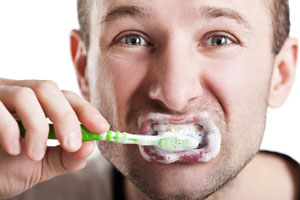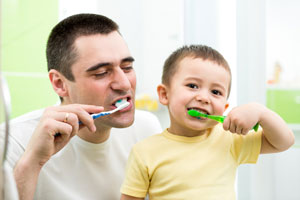
A step by step approach to find relief.
Regular brushing should be a part of your daily routine, something you do twice a day or more. However, it should be a simple, painless, and even mundane action. If something unusual occurs when you brush, you may have reason to worry. What should you do if you notice bleeding when you brush your teeth? While every case is slightly different, the following steps will help you deal with this particular problem:
- Determine if the bleeding is an ongoing problem or a one-time occurrence. Do you have a sore or an irritated spot in your mouth? This could be the explanation for bleeding when you brush your teeth.
- Check your mouth for cracked fillings, crowns, or caps that do not fit well. These common issues could cause your mouth to bleed. If this is the case, make an appointment with your dentist right away. The situation usually worsens with time.
- Think about what medications you may be taking. If you are taking any new medicines, such as blood thinners, these can cause you to bleed more freely. While there may not be a complete solution, it is worth mentioning to your dentist. You might also switch to a softer toothbrush.
- Check your equipment. Is your toothbrush in good condition? An old or damaged brush is more likely to cause bleeding than a newer, fresher brush.
- Are you regularly brushing and flossing? If you are inconsistent with your oral care, you are more likely to experience bleeding. Make sure you brush your teeth at least twice a day and floss at least once.
- If none of these issues seem to explain your bleeding, it is worth mentioning to both your dentist and your general practitioner. Working together, your doctor and dentist can help you deal with this situation.
A little blood when you brush your teeth may not be a big deal. The only way to find out for sure is to visit a dentist and have a full examination. Call or contact us online to make an appointment with Dr. Jon Smith DDS today, and let our experts help determine the cause of your bleeding gums or teeth. We want to improve your oral health and help you feel your best about your teeth. We look forward to seeing you in our office soon!








